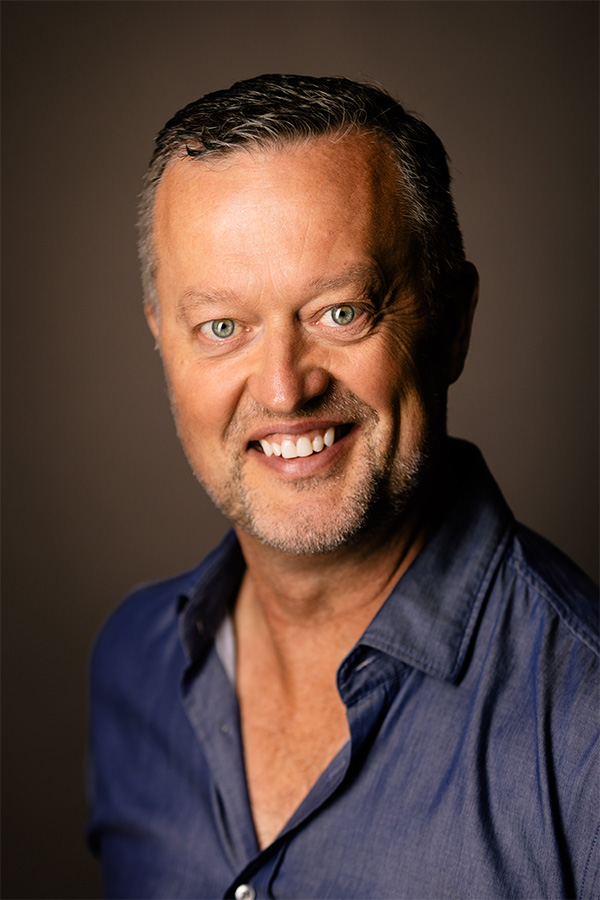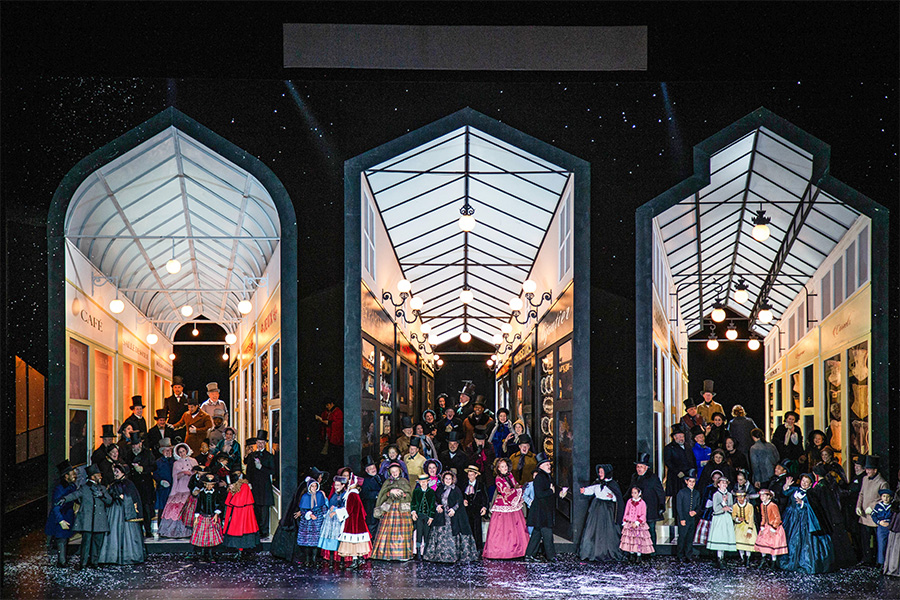January 21, 2025
People of Lyric: Michael Black
What is your role here at Lyric, and how long have you been in this position?
I am Lyric’s Chorus Director and Head of Music. The role of the chorus master is ostensibly to teach the music to the chorus, but beyond that it is to shape the music and to inform the group of the role their music plays in the opera. So we go through language in great detail, and we learn the notes, the framing, and the dynamics. But working on the color of the music is also so important. The chorus should have an informed sense of what is going on in the opera, both musically and dramatically. Most of my work is done in the rehearsal room, and then I hand them over to the staging crew, and they add in all the acting and movement, and the conductor does the final detailing of their performance. But I continue to hone the work of the chorus through opening night and at each of the performances.
I first came to Lyric in a part-time role for the 2011/12 Season and then started in this full-time role in the 2013/14 Season.

What keeps you committed to the work you do?
I love music, I have always loved music, and — not surprisingly — I continue to love music, so that is the thing that keeps me committed to this job. My first postgraduate degree was in collaborative piano performance, and I have always loved the work of collaborating with other performers.
Chicago is such a unique place for singers, one of the few cities in the world where a classical singer can make a full-time career singing for institutions like Lyric, the CSO, Grant Park Music Festival, Music of the Baroque, and at other fine music organizations in our city. So it is exciting to work with the caliber of singers found here in Chicago.
What led you to work at Lyric?
I had just finished working at the Edinburgh Festival and was in London when I received an email from Bill Mason, Lyric’s former general director, who invited me to apply for the position. I came over and auditioned and was lucky enough to be offered the job.
The role of the chorus in Verdi's DON CARLOS
While Verdi's early works are known for bombastic choral music, it's often the subtle moments in his later operas that excite Michael Black. In this interview, Lyric's chorus master discusses the evolution of the composer's style and the intimate and reflective role the chorus plays in Don Carlos.
What's something about your job that people might not know?
Many people might think that the work of the chorus master is finished when the music is learned and the opera has its opening night. But I am in the wings for every performance, on a two-step ladder, holding a miniature light saber in the dark in case I need to show someone where the beat is. So I am helping to steer the performance backstage as well.
The size of the chorus varies for every opera; we have 40 regular members and an additional 12 in the core supplementary chorus we use regularly. But some of the operas this season need even more voices in the chorus. Ernani had 60 and for Don Carlos we have 84 voices. Les Troyens, Turandot, and Aida are regularly done with more than 100 voices, so it is exciting to work with a different mix of singers on different operas and scale their voices accordingly to the musical needs of each work.
What is the most challenging aspect of your job?
Because we get our work so polished in our music rehearsals, the most challenging aspect of my job is working with the chorus to achieve that level of perfection once all the dramatic elements are added in and they take the stage. They must learn how to recreate those perfect sounds while they are acting and dancing and moving, then relearn it all again once they are in full costume and wigs and makeup. My challenge is constantly trying to push the chorus back to that moment of simple perfection in the bare rehearsal room. It’s stressful but I thrive on this collaboration with our artists in the chorus.

The company of Lyric's 2018/19 Season production of Puccini's La bohème.
Beyond opera, what are your other passions?
It’s hard to have other passions since I am here so late for performances! But I love movies — every day I have off I try to see a film. I have been passionate about movies since my childhood in Australia. Here in Chicago, I love going to the Landmark Century Centre Cinema at Clark and Diversey. I love a director like Ang Lee, who has had such a wide-ranging career trajectory from Hulk to Brokeback Mountain to Lust, Caution. The Hours is another favorite film of mine — I also loved the book and am looking forward to seeing how it works as an opera!
A favorite Lyric moment?
There have been times in the rehearsal room where the music becomes absolutely perfect, and I cherish those moments. Of the shows I’ve worked on, Rusalka in the 2013/14 Season and Carousel in the 2014/15 Season are standouts — both of those productions had very small choruses but were simply beautiful experiences. I like when the work of the chorus is woven into the fabric of the drama — I see that sense of achievement on their faces.
I remember on our production of Nabucco in the 2015/16 Season, the chorus blocking changed after the stage rehearsals, and the men did not have a chance to rehearse the new blocking prior to the final dress rehearsal, and there was catastrophe onstage during that dress rehearsal! I had tears streaming down my face. We still laugh about it seven years later, how they were all crashing into each other.
